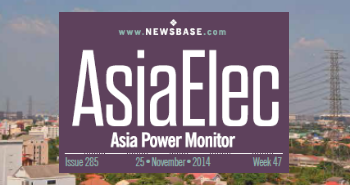AsiaElec: Kansai Electric brings in RWE to develop floating wind capacity in Japan

Japan’s Kansai Electric Power and Germany’s RWE Renewables have announced plans to work to develop offshore wind capacity off the Japanese coast, building on their work together in the UK.
Kansai Electric Power is bringing in RWE as Japan aims to become carbon neutral by 2050, with offshore wind playing a major role in meeting the goal.
“We see great potential for floating wind farms worldwide, but especially in countries with deeper coastal waters like Japan. Floating wind could help to raise untapped potential off the Japanese coast,” said Sven Utermöhlen, COO Wind Offshore Global of RWE Renewables.
RWE said it is keen to use its global expertise to test different types of floating foundations in Japan’s deep coastal waters. It has already carried out feasibility studies for fixed offshore wind turbines in Akita and Niigata prefectures.
For Kansai Electric, the deal with RWE means bringing in the deepwater floating wind expertise that it lacks.
“We believe that development of floating offshore wind farms will be the key to achiev[ing] this. RWE is our important partner in the UK offshore wind business. We believe that our existing relationship can be extended for safe and stable offshore wind operation in Japan, by combining Kansai EPCO’s experience and expertise in domestic electricity business and RWE’s global equivalent in offshore wind,” said Nozomu Mori, executive vice-president of Kansai Electric.
Offshore floating wind is still at an early stage of development in Japan. Only in June 2021 did the government award the first tender for a floating project. This was for a 16.8-MW floating wind project led by a consortium of six companies, headed by Toda Corporation, that includes Kansai Electric.
The company aims to become carbon neutral by 2050 and is currently developing 2 GW of renewable resources in a bid to reach 6 GW of green capacity worldwide by the 2030s.
At home, Kansai Electric has offshore wind projects at the development stage in Akita, Yamagata and Nagasaki prefectures.
In Europe, the company has been involved in two offshore wind projects, including one in collaboration with RWE at Triton Knoll (857 MW) in the UK.
Japan intends to install between 30 GW and 45 GW of offshore wind capacity, both floating and fixed, by 2040 as the country aims to reach carbon neutrality by 2050.
The Japanese government plans to award 10 GW of offshore wind capacity by 2030 with 1 GW per year of tenders.
Across Asia, floating offshore could be the next frontier in wind power development, said Wood Mackenzie, with capex costs set to fall by 40% to average $3mn per MW by 2025-2030.
Floating offshore wind accounts for just 6% capacity of the 26 GW of new offshore capacity anticipated in the current decade in Asia-Pacific, excluding China.
The Japanese government estimates that current capex costs of floating offshore can be as high as $10mn per MW but could be commercially feasible if brought down to $4mn per MW, compared with grounded offshore capex costs of $2-3mn per MW and an average Asia-Pacific onshore wind capex cost of $1.5mn per MW by 2030.



Follow us online